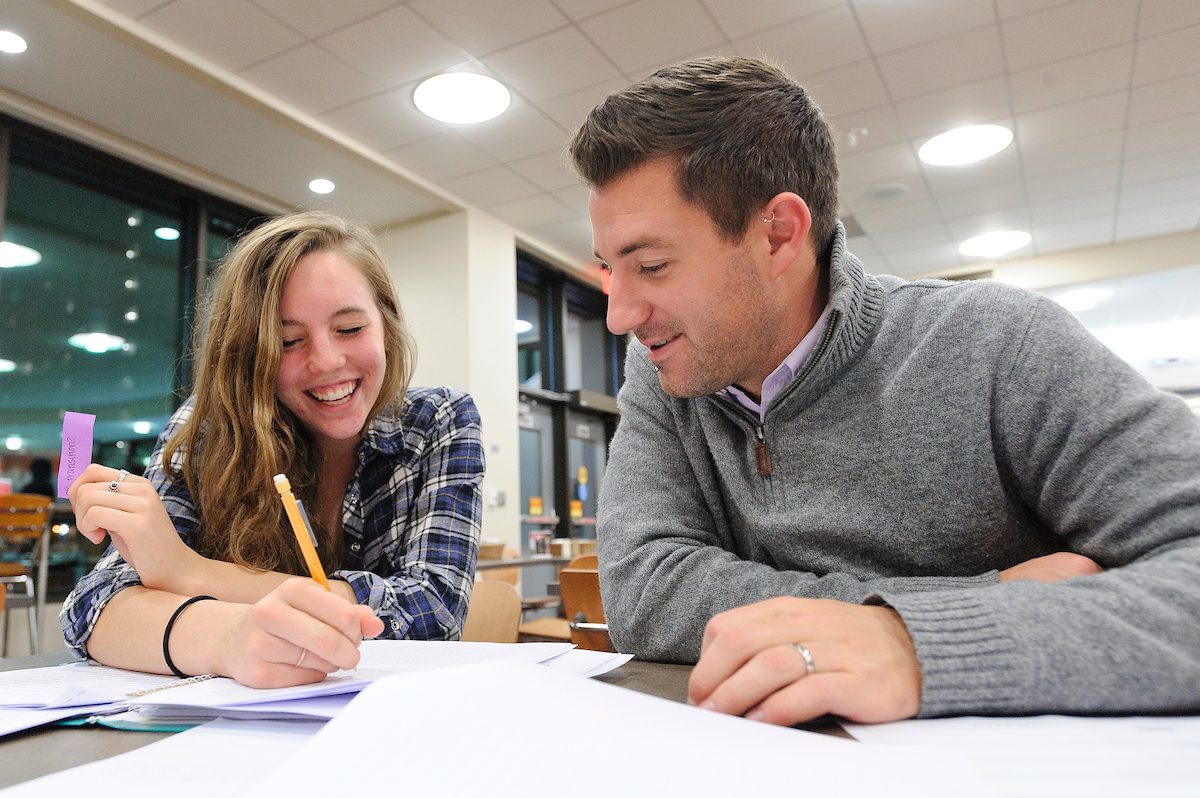
Whether your steepest academic challenge is solving calculus problems or writing research papers, Summer Term is a chance to tap into campus resources and take pride in your progress. The UW–Madison Writing Center is one such resource available in the summer. It’s a place to get help with nearly any type of academic or professional writing, from term papers for courses to personal statements for scholarship applications.
Free, one-on-one writing assistance from professional writing instructors is the Writing Center’s most popular service. After carefully reading a piece of your writing and noting your concerns, your writing instructor identifies sections that would benefit from revisions to strengthen an argument, clarify an important point, or improve the flow of the narrative. Writing instructors also provide guidance on issues such as organizing longer papers and citing sources. They do not edit or proofread your work. Instead, they answer your questions about editing and share resources to help you learn and practice this skill.
Any UW–Madison student may use these valuable services, according to Writing Center administrator Jennifer Fandel.
“This includes undergraduate and graduate students, international students in the ESL program, and students from other universities taking UW–Madison summer courses,” she says. “It also includes writers of all levels, from students who are struggling to those who simply want to do everything they can to excel in their courses.”

Convenient, personalized assistance
This summer, the Writing Center will offer assistance in its home at 6171 Helen C. White Hall and a satellite location inside College Library. To meet with a writing instructor at the main center, make an appointment online or call 608-263-1992. The satellite location offers assistance on a drop-in basis Mondays and Wednesdays from 6 p.m. to 9 p.m. beginning June 24. Just fill out the sign-up sheet when you arrive. Also, look for a Writing Center instructor at Summer Term’s study parties over the next three months.
In addition to providing in-person help, the Writing Center offers assistance by email. Email instruction is best for papers that are six pages or shorter. Students can expect to receive one or two ideas for revision after submitting a request form.
Fandel says this option and the center’s online Writer’s Handbook are great resources for students who aren’t in Madison this summer.
“Email instruction is a way for students who are traveling, interning, or conducting research in other cities to get help from our instructors,” she notes. “It’s also a good choice for students taking online courses.”
One-on-one assistance isn’t the only way to learn at the Writing Center, either. Specialized workshops help students strengthen their writing skills in small groups. Topics range from crafting stellar lab reports and nailing the essay portions of in-class exams. Watch the Writing Center website for information about two July workshops: Paraphrasing Like a Pro and Learning and Integrating Common Features of Professional Research Writing.
Building skills and confidence
Fandel likes to think of the Writing Center as a place for students to find support and empathy when they’re facing writing challenges. Such challenges can intimidate even the most talented author, she explains.
“Writing is a difficult and lonely process for almost everyone, so working with an instructor face to face has all sorts of benefits,” she says. “Here at the Writing Center, we like to say that every writer needs a reader. Our instructors strive to be helpful, understanding readers no matter what level of skill you bring to the page.”
Although Writing Center instructors are skilled scribes, they know how frustrating the writing process can be. After all, most are working on big writing projects of their own.
“Our instructors are UW–Madison doctoral students who are writing dissertations. They really do understand what you’re going through as a writer,” Fandel says. “Plus, as teaching assistants, they are educators who are interested in helping you succeed.”
Fandel adds that students tend to feel more confident as they watch their writing skills grow from one visit to the next.
“Some students visit us for their toughest writing projects and others come in for a weekly check-in that helps them feel confident as writers,” she says. “That’s really what we’re about: Giving students the confidence and tools to keep growing as writers.”